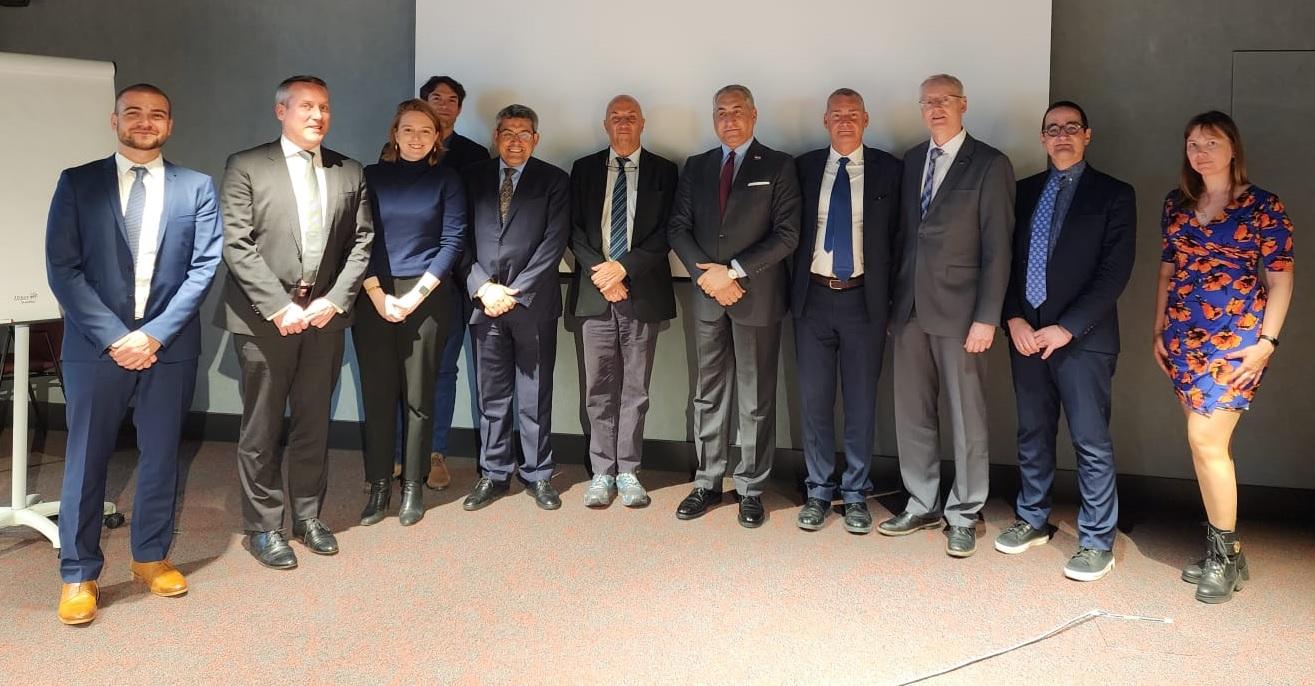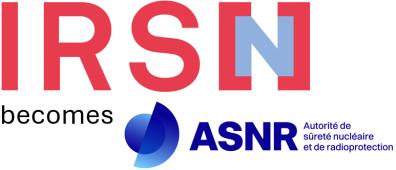The European Union launches the inception meeting of: Supporting capacity building of Radiation Protection Centre in the field of Radioactive Waste Management

Since the project kick off meeting in November 2022, the project partners have worked together in order to elaborate a final roadmap covering technical visits and training activities both in Jordan and in France, in order to achieve three specific objectives:
- To improve infrastructure rules related to radioactive waste disposal facilities,
- To strengthen the license management of disposal facilities,
- To improve regulation and monitoring in the field of nuclear safety, namely radiation protection in the context of management, decommissioning, and clean-up of radioactive waste.
The direct recipient of this project is the Iraqi Regulatory Body, the Radiation Protection Centre (RPC) within the Iraqi Ministry of Environment (MoEN), beneficiary of the project.
With the participation of Dr. Jassim Abdul Aziz AL-FALAHI, Vice-Minister of Environment, Republic of Iraq, and the Ambassador of the European Union to the International Organisations in Vienna in Vienna, Mr. Stephan KLEMENT, the inception meeting was not only an opportunity to present the project implementation strategy and goals to be reached within the next three years but also to have an overview on how the project will benefit on a larger scale to the Iraqi Ministry of Environment. The Iraqi Republic is currently reshaping its legal framework with the ongoing adoption of a bill establishing an independent nuclear authority in Iraq.
The inception meeting provided also fruitful discussions between Dr. Sabah ALHUSSAINI, Head of The Iraqi Regulatory Body, the RPC, the European Commission representative, Mr. Stephan BRUMM and Mr. Xavier COUSQUER, Head of the Peace, Stability and Security Department Director, Expertise France, lead implementer of this project. These exchanges were supported by technical information from Andra and IRSN, leading organisations in their respective fields in France, which provided useful technical insight into the project.
Background
After the Chernobyl accident in 1986, the European Union launched the Nuclear Safety Programme within the framework of technical assistance to the Commonwealth of Independent States, which, between 1991 and 2006, allocated about 1.2 billion Euros to nuclear safety and security projects. From 2007 to 2013, the European Union extended its support in the field of nuclear safety to third countries under the Nuclear Safety Cooperation Instrument, with a total budget of €524 million. In June 2014, a strategy for the implementation of the second phase of the Nuclear Safety Cooperation Instrument (2014 to 2020) was agreed, with an additional €325 million allocated to nuclear safety projects. Then, in May 2021, a new program of 300 million Euros was approved for the period between 2021 and 2027.
The Iraq Nuclear Decommissioning Project (IDP) began in 2006 following a request submitted by the Government of Iraq to the International Atomic Energy Agency in December 2004, with the aim of assisting Iraq in planning and decommissioning of the nuclear facilities, management of the generated radioactive waste, treatment of contaminated sites, as well as formulation of the relevant legal and regulatory framework. In 2009, the European Union launched a coordinated effort to contribute to this programme.
Implementing partners
Expertise France
As the second largest agency in Europe, Expertise France designs and implements projects that sustainably strengthen public policies in developing and emerging countries. Expertise France, as a pillar-assessed national agency for cooperation and development will therefore ensure a solid and smooth implementation of the project.
IRSN
France’s National Institute for Radiological Protection and Nuclear Safety, IRSN, is a public expert with industrial and commercial activities set up in 2002. The institute is under the joint authority of the Ministry of Defense, Ministry of the Environment, Ministry of Industry, Ministry of Research and the Ministry of Health.
Andra
Established as an independent structure in 1991, the French National Agency for Radioactive Waste Management, Andra, is responsible for identifying, developing, implementing, operating and guaranteeing safe and sustainable management solutions for all French radioactive waste, to protect present and future generations from the risks inherent in such substances.
For more information, please contact:
Jean-René JOURDAIN, European and International Affairs Department of IRSN.
Julien Malleville, European and International Affairs Department of IRSN.
